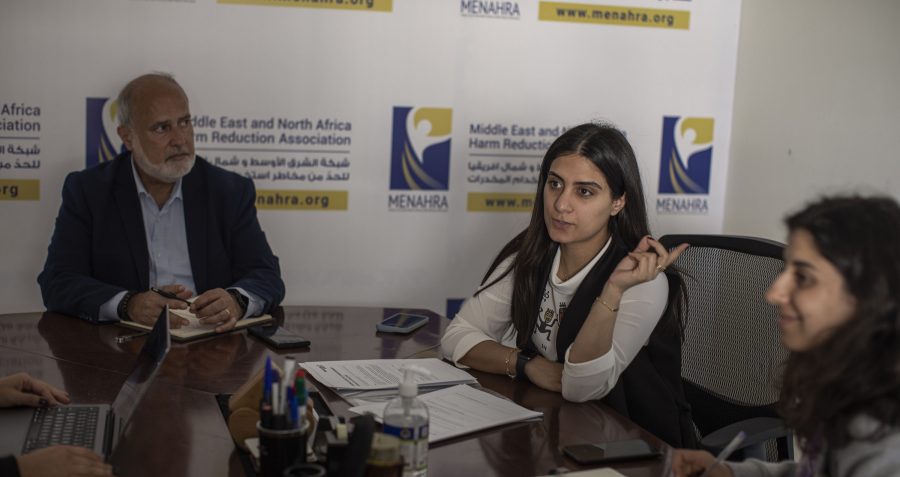Emergency Preparedness Plans (EPP) in MENA

Key information
- Organisation: Middle East and North Africa Harm Reduction Association (MENAHRA)
- Countries: Egypt, Jordan, Lebanon, Morocco, Tunisia and Yemen
- Region: Middle East and North Africa
- Stage of innovation: Stage 6: In the market and ready to scale
- Dates: 2022
- Type of innovation: Policy innovation: change to policy thinking or behavioural intentions
- Funder: Global Fund and Frontline AIDS
Summary of intervention
Under The Global Fund COVID-19 Response Mechanism of the Global Fund Multi-Country MENA grant, the Nadoum Programme, the Middle East and North Africa Harm Reduction Association (MENAHRA) conducted a two-phased intervention to develop Emergency Preparedness Plans (EPPs) specifically focused on key populations for Egypt, Jordan, Lebanon, Morocco, and Tunisia. The first phase comprised national situational assessments to understand the specific country contexts relating to the impact of COVID-19 on key populations’ lives and the pandemic’s repercussions on essential harm reduction and health services.
The second phase saw the development of national EPPs guided by the WHO strategic framework for emergency preparedness. The final EPPs with findings and key recommendations were rolled out through national validation workshops with Ministries of Health, National AIDS Programmes, and CSOs.
The EPPs cover three thematic areas: governance, capacity, and resources and will help governments, NGOs, and UN agencies to strengthen their readiness concerning national public health systems and focus on early preparedness measures, employing local resources to mitigate the adverse impacts of disasters, and ensuring the timely, appropriate, and sufficient delivery of emergency responses. Emergency preparedness also targets enhancing resilience, particularly in vulnerable households and communities, and building local capacities to handle crises. By incorporating interventions for HIV and harm reduction into the broader disaster response framework, key populations are now prioritised in efforts to enhance the protection and well-being of all groups affected by pandemics and other health emergencies.
learnings
The findings from the situational assessments revealed that strict COVID-19 measures, which governments imposed to contain the pandemic, harmed both the well-being and livelihood of people from key populations, as well as the ability of HIV and harm reduction service providers to deliver essential services. The assessment findings also showed that harm reduction service providers, both public and CSOs, were unprepared to deal with the tremendous shocks of the COVID-19 pandemic. The assessments provided in-depth insights and learning into the challenges and gaps in services that hindered HIV and harm reduction services for key populations.
next steps
National Action Plans have been developed with the national partners, who will implement the suggested recommendations and activities.
sustainability
MENAHRA’s situational assessment and EPPs have provided critical insights into the importance of establishing national EPPs, given the negative experiences of the COVID-19 pandemic, which exposed the fragility of existing mechanisms. This work means that, in future, those providing HIV and harm reduction services to key populations will be better prepared with risk mitigation, adaptation to contextual challenges, resource management, community engagement, and policy and advocacy in a collaborative approach that puts the lived experience of marginalised people at the centre.

